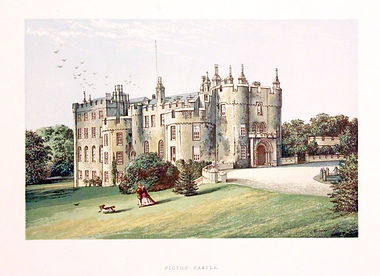PHILIPPIDES ONE-NAME STUDY

Uncovering The Rich History and Discovering Philippides Worldwide
PHILIPPIDES
NAME ORIGINS AND OUTREACH
Philippides is an ancient Greek name meaning "Son of Philip"; Philip means "lover of horses". The name Philippides is also seen as a derivative from the ancient Greek name "Philippos/Philippus" . The Greek origin of the name Φίλιππος (Philippos, lit. "horse-loving" or "fond of horses" is from a compound of φίλος (phílos, "dear", "loved", "loving") and ἵππος (hippos, "horse"). In Ancient Greece, the ownership of horses was available only to those rich enough to afford them. Thus, "lover of horses" can also be understood as "noble". One of the bearers of the name is king Philip II of Macedon ( father of Alexander the Great. Men who had fathers named Philip adopted some variation of the surname adding an " S ". These permanent surnames came into general use in Europe from 1000 AD to 1800 . Prominent Philips who popularized the name include kings of Macedonia and one of the apostles of early Christianity.
IT'S OUTREACH OVERVEIW
The name was later bestowed on six kings of France and five Kings of Spain. The forename Philip migrated to England via France in the 12th century and became popular. These permanent surnames came into general use in Europe from 1000 AD to 1800 Early on it appears as "Filippus" in the Documents relating to the Danelaw, Lincolnshire, dated 1142, and as "Philipus" in the Gilbertine Houses Charters of Lincolnshire, circa 1150. Philip was a popular first name in medieval Europe, it was imported into Wales quickly and became numerous by the late 13th century as Phelip, which was abbreviated as Phe: in early records. By the 15th century, it was found in small numbers in several parts of Wales, but it was mainly concentrated in the southern areas, especially Gwent and Morgannwg, where it reached 3%. Since it averaged 1% for all Wales, it was bound to form a significant modern surname by the patronymic route. The variant spellings of the surname are many, such as Philip, Philipp, Philipps, Philips, Phillip, Phillipp and, of course, Phillips. Early examples of the name in Scotland are Rauf Philippe, a Berwickshire landowner, who figures in the Ragman Roll of 1296; Robert Phillope who was sheriff clerk of Dunfries in 1629; and James Philip of Almerieclose, who was author of the Graemiad, an epic poem in Latin on the Claverhouse campaign of 1689. In the south, the name can be connected to Phelps or Phipps; in Scotland, the shortened form is Philp. In modern times, Phillips, an English name, has to some extent taken the place of Philbin, the Irish diminutive of Philip. With the prefix 'Mac', it is found in Cavan and Monaghan and there it is usually a branch of the Scottish clan MacDonnell of Keppoch.
Left :Print of The Philippses Picton Castle Right : Picton Castle Today

